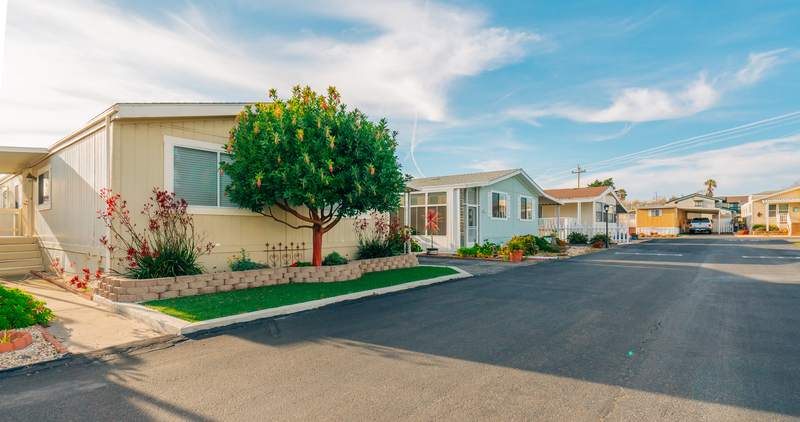

For years, each time a client in New York State decided to refinance their home, they would pay a state mortgage recording tax on the entire new loan amount. But luckily, there’s a new workaround when it comes to refinancing: a CEMA loan.
Let’s take a closer look at what a CEMA loan is, plus, whether this is the right loan for your situation.
A CEMA mortgage loan (Consolidation, Extension and Modification Agreement) is only available for New York residents. This loan option significantly reduces refinancing costs because you’re not paying the full mortgage recording tax. Instead, the borrower pays the difference between the existing principal balance and the new loan amount.
When buying a piece of real estate in New York, you’ll face a mortgage recording tax unless the property is a co-op. The taxes are collected on a state level. But several counties add an extra local tax. In NYC, the mortgage recording tax ranges from 1.8% – 1.925% of the mortgage amount.
This tax is levied on both home purchases and mortgage refinances, which means you could end up paying this tax more than once if you want to refinance. A CEMA loan is designed to help reduce closing costs and the NY tax burden.
See recommended refinance options and customize them to fit your budget.
One thing to note is that CEMA loans have some additional fees involved that could make them less advantageous. Fees vary for individual loans and can range from a few hundred to a few thousand dollars. They typically cover CEMA assignment fees, closing fees and processing fees.
Here’s an example of how much you could save. Let’s say that you have a $300,000 existing mortgage on a New York property. With closing costs of $15,000 and a local NY tax rate of 1.8%, you would pay $5,400 in total tax without CEMA.
But with CEMA, you would pay $270 total tax plus CEMA fees. If the CEMA fees totaled $1,500 in the example above, the homeowner would clearly benefit from using a CEMA loan.
However, CEMA loans may not always be a good fit. Tax rates and attorney fees vary, meaning that a non-CEMA loan may be less expensive in the long run. But most clients looking for cost-effective refinancing should consider a CEMA loan and determine if it would benefit them.
The most immediate requirement for a CEMA loan is to be a New York State resident. CEMA loans are only available to refinance conventional, FHA and jumbo loans. VA loans are not available. Although CEMA loans are commonly used in place of a traditional refinance, this is an extremely rare loan type for those buying a home.
Most types of houses and living situations can qualify for a CEMA loan, except for co-ops. New York State doesn’t collect mortgage taxes on co-ops, as co-op personal shares aren’t considered real estate.
Finding a lender that offers CEMA refinancing can be difficult, and you should make sure that the lender you choose offers it. Consider asking your current lender if they offer CEMA loans. If not, shop around for a new lender.
Now that you know what CEMA in NY is, it’s time to decide whether this loan type is right for your situation. Every loan type has advantages and disadvantages. Here’s what you should consider before moving forward with a CEMA loan.
Homeownership is expensive, and owning real estate in the state of New York is very expensive. That’s especially true in New York City. So, it makes sense that one of the most attractive benefits of a CEMA loan is the avoidance of additional mortgage recording tax.
It’s possible to save thousands upfront by choosing a CEMA loan over a traditional mortgage refinance. Additionally, you can potentially tap into a lower interest rate and reduce closing costs with a CEMA loan.
While a CEMA loan does save you money in many cases, it’s not necessarily the quickest process. The state of New York, and any previous lender, must do some special signing off in order to get the mortgage and title transfers processed under CEMA regulations, allowing you to pay taxes only on the new money in the transaction rather than the full principal balance.
This means that CEMA refinances are going to require a little more patience than your typical refinance. It may take 60 – 90 days to close your loan. However, they’ll keep you updated throughout the process.
If, for some reason, you really need your loan to close quickly, you can look at other refinance types. Just be aware that you could pay additional taxes in exchange for that speed.
If you are a resident of New York considering a refinance, then a CEMA mortgage is a great option. Although it may take more time than a traditional refinance, this option could save you thousands in taxes.
See recommended refinance options and customize them to fit your budget.












LMB Mortgage Services, Inc., (dba Quicken Loans), is not acting as a lender or broker. The information provided by you to Quicken Loans is not an application for a mortgage loan, nor is it used to pre-qualify you with any lender. If you are contacted by a lender or broker advertising within our network, your quoted rate may be higher depending on your property location, credit score, loan-to-value ratio, debt-to-income ratio, and/or other factors. Quicken Loans does not offer its matching services in all states. This loan may not be available for all credit types, and not all service providers in the Quicken Loans network offer this or other products with interest-only options. The information that we provide is from companies which Quicken Loans and its partners may receive compensation. This compensation may influence the selection, appearance, and order of appearance on this site. The information provided by Quicken Loans does not include all financial services companies or all of their available product and service offerings. Article content appears via license from original author or content owner, including Rocket Mortgage.
Note: Actions on this website are recorded for quality assurance or training purposes. Input of data constitutes consent.
Quicken Loans is a registered trademark of Rocket Mortgage, LLC, used under license by LMB Mortgage Services, Inc.
LMB Mortgage Services, Inc. | NMLS #167283
4859 W Slauson Ave #405 Los Angeles, CA 90056